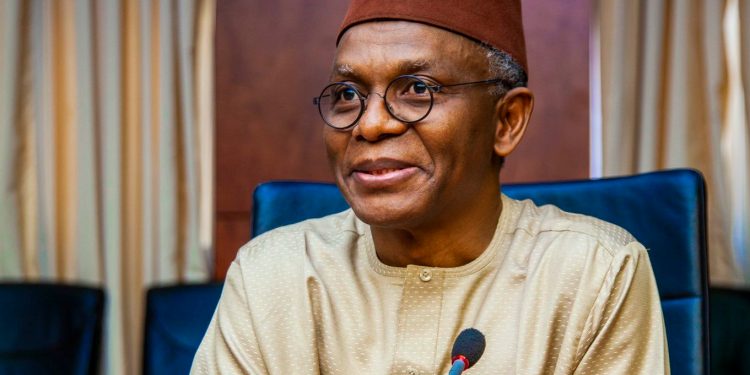Former Kaduna State Governor Nasir El-Rufai has raised alarm over what he described as the deteriorating state of Nigeria’s judiciary.
He claimed the system has become compromised and increasingly serves the interests of the elite.
Speaking yesterday at the Nigerian Bar Association (NBA) Bwari Branch Law Week in Abuja, the former governor, who is also a trained lawyer, expressed concern over what he termed “a growing disconnect between justice and the law.”
READ ALSO: El-Rufai slams Tinubu administration as “most corrupt, intolerant” in Nigeria’s history
El-Rufai warned that public confidence in the judiciary is fast eroding due to what he called “a culture of delay, manipulation, and perceived favouritism.”
“Our judiciary, once seen as a beacon of justice and the last refuge for the common man, is now under the microscope,” he said.
“Delays in delivering verdicts, lack of consistency, and suspected influence from powerful interests have led many Nigerians to view the courts with scepticism.”
He noted that judicial processes often appear to favour wealthy individuals and political elites, leaving the average Nigerian disillusioned.

“There is an increasing belief that justice in this country is something money and connections can buy,” he added.
“What we are witnessing is not always the administration of justice, but rather the mechanical application of law that sometimes bends to political convenience.”
El-Rufai also criticised the use of ex parte orders in politically sensitive cases and the alleged practice of “forum shopping”—where litigants seek favourable courts to secure biased outcomes.
According to him, “There is a clear gap between what the law is and what justice ought to be. In too many cases, judicial decisions appear aligned with executive interests rather than constitutional integrity.”
He called on legal practitioners to engage in deep introspection and question whether the legal profession is still upholding the principles it claims to defend.
“To all of you who serve in the temple of justice, the moment has come to examine whether the scales still weigh fairly and whether blindfolded Lady Justice still exists in our courtrooms,” he urged.
El-Rufai did not spare the National Judicial Council (NJC), accusing the body of lacking the will to discipline erring judges and failing to uphold transparency in judicial appointments.
He highlighted what he termed a pattern of weak disciplinary actions, irregular judgments in electoral disputes, and opaque selection processes as contributors to the perception of widespread corruption in the judiciary.
“If we are being truthful, we must accept that judicial corruption is no longer whispered—it has entered the mainstream of public discourse,” he said.
“The NJC, in its current form, is struggling to restore trust and urgently needs internal reforms.”
Reflecting on the changing public attitude toward judges, El-Rufai recalled a time when members of the judiciary commanded deep respect in society.
READ ALSO: Mallam Ahmad Rufai Muhammad – Nasir El-Rufai’s father
“There was a time when Nigerians held judges in high esteem, even walking past their homes with quiet reverence.
“Today, that respect is eroding rapidly. Judges are now openly criticised, insulted, and in some cases, physically targeted,” he lamented.
“It is a painful sign of how far the institution has fallen.”


